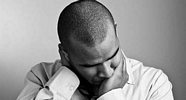Certainly yes, our mind, determination and breath – all three are interconnected. The pace of your breath naturally follows the thoughts that come into your mind. But you live in such an unconscious state that you are not able to observe this change.
The body is like a chariot. The breath is similar to the reins of the chariot and the mind is like the charioteer. A charioteer is one who drives the chariot. The senses are the horses in the chariot of your body. This is an old Vedanta expression.
We have fivegyan-indriyas(sense organs): eyes, ears, nose, tongue and skin. And we have fivekarma-indriyas(the action organs). The tongue, hands, feet and the two doorways that we use to get rid of wastes in the body are our five action organs. The tongue has two senses: when we use our tongue to taste, it becomes a sense organ and when we use the same tongue to speak and that also to speak harsh about somebody then it turns into a weapon. The tongue is used for many things: it can be used to murder people, when even a sword or an arrow proves futile, or it can also be used to win over a person who has been difficult to win over even by the use of weapons. Therefore, the tongue is a major action organ.
These ten senses are the horses of the chariot, the breath is the rein and the mind is the charioteer that is driving the chariot. Now, if the charioteer loosens the reins, the horses will go as per their wishes, and if the charioteer pulls the reins, the horses will run carefully. If the charioteer pulls the reins to the left, the horse will turn left, and if the charioteer pulls the reins to the right, they will turn rightwards. If he pulls both the reins together, with equal force, then the horses will understand that they must go straight. If you have ever ridden a horse, you will know all this. If the one riding the horse has no experience in this, or does not understand this, the horse can sense it easily. Then it does as it pleases and runs as it wants.
The horses of your " target="_self" senses behave as they please – why is this so? This is because there are two problems: the first being that our reins are loose and the second being that the rider which is the mind, is also scattered; the mind is unconscious. The reins are out of its control and although the reins are in our hands, the charioteer of the mind is not conscious. Therefore what is happening here is that these horses of the senses go as per their own wishes, on their different ways, and the mind has no control over them.
How can there be control over the horses and the chariot? The horses will walk correctly only if the reins are held correctly, if they are pulled correctly and the one riding is a sensible rider. Here the difficulty is that there are ten horses, each walking in a different direction – therefore there are ten horses and ten directions. The eyes tell you to look at something, the ears tell you to hear something, the tongue instructs you to eat something, and the nose says smell something. Each sense organ wants to go its own way.Imagine this – a chariot that is drawn by ten horses and all the ten horses are trying to go in ten different directions, where will the chariot go? In what direction will it go? Where will it reach? It will not be able to go anywhere; it will not reach anywhere; it will stay exactly where it was. The force that would be used by these horses would deplete them of their energies on top of all this confusion.
The mind can drive the body and the senses. How? Through the breath. Whenever there is a change of emotions in the mind, there is a change in breathing as well. If there is anger in the mind, the breathing quickens, when the mind is filled with physical passions the pace of breathing increases. Please observe that as soon as there is a change of mind, the pace of breathing changes immediately, and as soon as the mind begins to get tranquil the pace of breathing also changes. When sleep comes to us our breath begins to get longer, and long breath increases the amount of oxygen in your body, and when this reaches the nerves of your brain, then all the nerves become relaxed and the result of this relaxation is sleep.
Different emotions and thoughts enter the mind and these alter our breathing. When the sages understood this secret, then they used the same principal as a means to drive the mind on to the straight path. They did a lot of research on the subject that if we were to give a certain pace to our breathing, would that affect the mind? In their conclusion they found that yes it did! If the changing pace of our mind affects our breathing, then a change in our breathing surely affects our mind. Your mind knows a thousand ways to dupe you.
" target="_self" Breathing , mind and determination are all linked to each other. The determination to mediate must enter the mind and we must determinedly take deep breaths. You can use your determination, your resolve to lengthen, quicken or lighten your breath – whatever you want. The mind chooses to breathe deeply or longer, and the breath accordingly becomes deeper or longer. As soon as this happens, thoughts stop coming into the mind – they begin to get still. Now there is a difference here, in that the mind only possesses the ability to think and desire, but determination is a contribution of the intellect. The mind is not able to resolve – that is done only by the intellect. Therefore the intellect is giving the final decision not the mind; the mind is always wavering. You go into meditation through your intellect and not through the doorway of the mind. Therefore please understand the connection between the mind, breath and determination and be vigilant in your every action.



